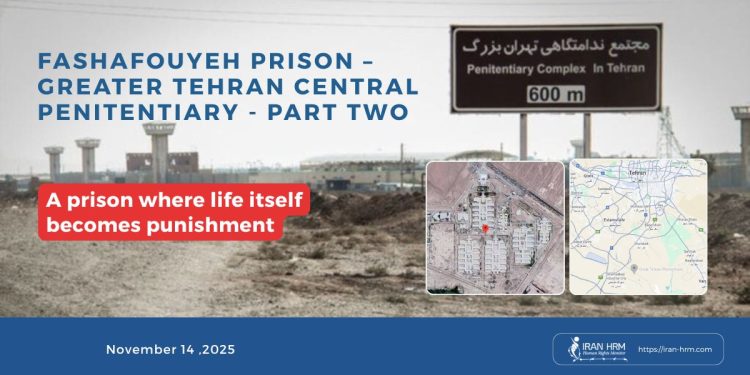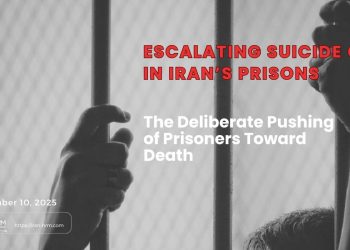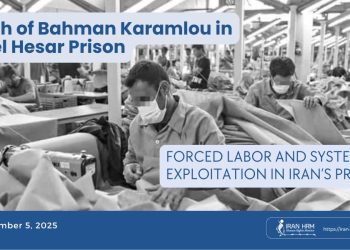Legal and International Analysis
What was detailed in the first part of this report is not a collection of isolated incidents but a consistent and recurring pattern of human rights violations. This report has been prepared in accordance with Iran’s obligations under the International Covenant on Civil and Political Rights (ICCPR), the Convention against Torture (UNCAT), and the UN Standard Minimum Rules for the Treatment of Prisoners (Mandela Rules).
1. Denial of Medical Care: Torture Disguised as Neglect
Depriving sick prisoners of medical treatment constitutes cruel, inhuman, and degrading treatment under Articles 7 and 10 of the ICCPR and Rules 22–24 of the Mandela Rules. In this pattern, the prisoner’s body becomes a silent field of torture — a consistent pattern of deliberate medical deprivation.
2. Torture and Degrading Treatment
Prolonged solitary confinement, humiliation of families during visits, and beatings of political prisoners amount to violations of Article 7 of the ICCPR and Rule 43 of the Mandela Rules.
3. Forced Labor and Economic Exploitation
Unpaid labor and the sale of internal prison posts constitute violations of Article 8 of the ICCPR. In Fashafouyeh, poverty and pressure serve as instruments of control and punishment.
4. Violations of Core International Instruments
The following table summarizes the international standards violated in Fashafouyeh Prison:
| Instrument | Article | Type of Violation |
| ICCPR | Article 6 | Deprivation of the right to life through medical neglect |
| ICCPR | Article 7 | Torture and inhuman treatment |
| ICCPR | Article 10 | Inhuman treatment of prisoners |
| Universal Declaration of Human Rights | Article 3 | Violation of the right to life and personal security |
| Universal Declaration of Human Rights | Article 5 | Prohibition of torture |
| Mandela Rules | Rules 22–24 | Denial of health and medical care |
| Mandela Rules | Rule 43 | Solitary confinement and cruel punishment |
5. Accountability of Officials
The following table identifies responsible officials and their level of accountability:
| Official | Position | Documented Violation | Accountability Status |
| Asghar Fathi | Former Warden | Deaths of prisoners due to medical neglect | No prosecution |
| Ali Chahar-Mahali | Current Warden | Continued mixing of political and ordinary prisoners | Promoted |
| Ministry of Intelligence | Security Agency | Blocking enforcement of forensic medical rulings | Full impunity |
6. International Reactions
Amnesty International (2025): Warned about the imminent execution of amputation sentences in Fashafouyeh and described it as a form of torture.
UN Special Rapporteur (March 2025): Described Fashafouyeh as ‘a symbol of institutionalized torture and medical neglect’ and called for unrestricted access.
International media (Reuters, France 24, Al Jazeera): In separate analyses, identified Fashafouyeh as the largest center of prisoner rights violations in Iran.
7. Final Analysis
The documented violations in Fashafouyeh constitute grave and systematic breaches of human rights. In this system, law becomes an instrument of punishment, and medicine a means of torture.
8. Call to Action
The findings of this report are submitted for consideration by the United Nations mechanisms and international human rights institutions:
– Immediate access for UN Special Rapporteurs to Fashafouyeh Prison
– Formation of an independent fact-finding committee on prison deaths
– Immediate release of sick prisoners and suspension of amputation sentences
– Targeted sanctions against responsible officials
End of Part Two – An open case before the conscience of the world.
As long as these walls stand, the voices of prisoners will not fall silent.
Justice may be delayed, but its path begins with testimony.







